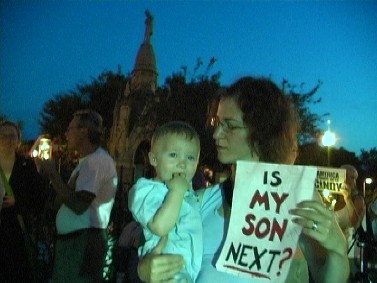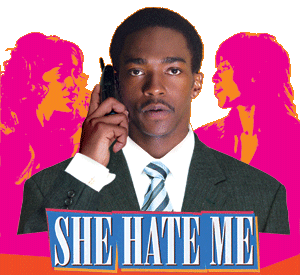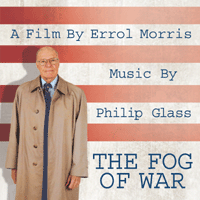antiwar: This Was an Attack on Unembedded Journalism: "AMY GOODMAN: In an interview with Sky Italia, Sgrena described what happened.
GIULIANA SGRENA: [Translated from Italian]We were on our way to the airport, and we thought we were finally safe, because the area where we were was under the control of the United States. We therefore thought we had escaped the gravest area and entered into a more friendly area, although I was still nervous as my hostage takers had warned me to be careful, because it was the Americans who did not want me to be free, and returned to Italy alive. I just took that as a last threat from my hostage takers and did not really take it seriously. But then suddenly we found ourselves under an immense amount of bullets, something terrible, without any warning, and we realized that nearby there was an American tank which was shooting at us.
AMY GOODMAN: Giuliana Sgrena in an interview. The U.S. military has a different story. They say the car was speeding as it approached a checkpoint. In a statement, the military claims soldiers first tried to warn the driver to stop, by, quote, “hand and arm signals, flashing white lights and firing warning shots in front of the car.” In an interview with an Italian TV channel, Giuliana Sgrena disputed the military's account, stating there was no bright light, no signal, that the car was traveling at regular speed. She also told Italian television that a ransom was paid for her release, and it was possible she was deliberately targeted by U.S. forces. She said, quote, “The fact that the Americans don't want negotiations to free hostages is known. The fact they do everything to prevent the adoption of this practice to save the lives of people held hostages, everybody knows that. So I don't see why I should rule out that I could have been a target,” Sgrena said. The Pentagon has said only the incident is under investigation. Joining us now on the telephone from Rome is Luciana Castellina. She is one of the founders of Giuliana Sgrena’s newspaper, Il Manifesto. She has just returned from the state funeral of Nicola Calipari, the intelligence official who was killed. We welcome you to Democracy Now!
LUCIANA CASTELLINA: Hello.
AMY GOODMAN: It’s very good to have you on Democracy Now! again. Can you describe the funeral today and the atmosphere in Rome?
LUCIANA CASTELLINA: Well, I would say that the funeral -- first of all, there were thousands and thousands of people who attended the funeral, and since yesterday, where the coffin had been exposed in Piazza Venezia, there was a long queue which lasted for hours, because everybody wanted to go and make an homage to Nicola. He is called Nicola now by everybody, which is his name because -- I mean, everybody was so grateful because he sacrificed his life. So, the funeral was, I would say, very human. I mean, everybody was there, from the government, the opposition, all the institutions, the family, the friends, the representatives of the church. And I think it was quite human, because I think the government, Italian government, was quite embarrassed because they found themselves in a -- well, you know, I mean, one of the best and most loved men of the secret service which sacrificed his life has been killed by an American bullet. It’s not an easy situation.
AMY GOODMAN: Can you talk about how high up in intelligence he was, the title, International Operations Chief of Italy's military intelligence service, certainly a position that I'm sure was often criticized by Il Manifesto, your newspaper?
LUCIANA CASTELLINA: The services, you mean, in general?
AMY GOODMAN: I'm saying that Nicola Calipari, the fact that he was Chief of International Operations of Italy's military intelligence service, he was, I'm sure, often a target of criticism of your newspaper, Il Manifesto?
LUCIANA CASTELLINA: Well, [inaudible] secret service is [inaudible] the secret service of your own country, do you? We didn’t. But with Nicola, for months, human relation -- he is nearly friendly relationship was established because the editor of Il Manifesto and Giuliana's husband have met Nicola several times, because he was going up and down from Baghdad to here. And really, I mean, everybody trusted him and appreciated the fact that he risked his life to save Giuliana so, that was -- it was a real shock when we were told that he was -- that he was killed. I mean, he was killed for a very courageous gesture, because he covered Giuliana's body, who could have been killed otherwise.
AMY GOODMAN: Luciana Castellina, we'd like to ask you to wait for a moment. We have to break. And when we come back, I want to ask you about the significance of this death and talk about what it means in Italy, whose population has been very opposed to the occupation, although Prime Minister Berlusconi has been very much an ally of President Bush, and what this means.


 Song for Cindy Sheehan Video
Song for Cindy Sheehan Video




































 Madeleine BAROUKHEL-MOUREAU
Madeleine BAROUKHEL-MOUREAU 



























